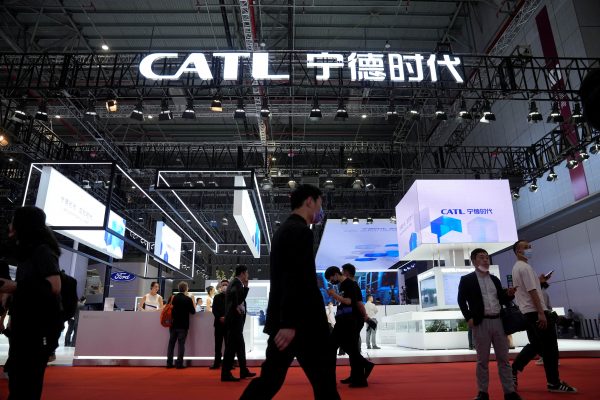Today’s China is neither democratic nor truly socialist. But, for those reasons, it’s the world’s most prominent testbed of some of the tensions between markets and the party-state’s new national agenda and its impulses towards unquestioned pre-eminence in the country’s political, economic and social life.
As Yvette To explains in this week’s lead article, China’s technology industries are a key area in which these tensions have played out in recent years. The tech sector is distinctive in that it has flourished largely through the leadership of private firms— often those founded by charismatic and outspoken entrepreneurs — with the SOE sector playing a large bit-part. As To says, these companies’ ‘rapid growth in size and wealth, as well as evolving business models, have inevitably generated new challenges and instabilities’. A key part of the government’s concern was the vast quantities of user data being hoarded by tech firms and the commercial, rather than government, interests it was being put to.
These are not uncommon tensions in democratic and other polities, with their resolution neither as transparent nor as clean as we sometimes might pretend.
To writes that, in China, ‘ensuring data is managed and used to the benefit of the Party and the public, not just private actors, remains a key logic in the Chinese Communist Party’s governance’ of the sector. This logic is embodied in the Data Security Law and Personal Information Protection Law, which together seek to encourage the localisation of, and facilitate government access to, private firms’ data. Alongside this, tech firms have been recruited as agents of the government’s ambitions to increase Chinese leadership in critical technologies, through an industry policy involving subsidies and direct state investments into tech conglomerates.
Moreover, with the government rightly anxious about the vulnerability of the financial system as the real estate sector has floundered, the growth of fintech firms as an increasingly important source of consumer credit has raised regulators’ ire. ‘Notwithstanding the merits of financial technology’, To writes, ‘excessive microlending without adequate security could create a financial bubble, posing systemic risk to the national financial system’.
Jack Ma and his Ant Group — parent company of Alipay, the world’s biggest e-payment service — became emblematic of the tech crackdown after he was effectively forced out of his job, and out of China, when authorities decided to make an example of him. There has been plenty of speculation about the political motivations behind Ma’s scapegoating, but Seaton Huang argued that aside from the politics, ‘Ant’s rectification was seen as necessary due to the risk that it would overtake functions of traditional state-led financial and banking institutions’. Alibaba confirmed on 19 May that it would also publicly list its cloud services division in response to increased scrutiny from Beijing.
As in other countries, there is a genuine public interest in China in having tech sector regulation catch up with the growth and power of the industry. But Beijing’s agenda is bigger than disciplining what it sees as cowboy entrepreneurs and regulating for public integrity. The big picture effect of the regulatory sticks and carrots applied to technology companies has been to wrest strategic influence over a sector policymakers saw as beginning to flaunt its political independence and at least in part reorienting it towards development and national security goals.
It’s a picture which re-emphasises state capitalism under Xi, one which the IMF says risks slowing China’s ability to make the necessary ‘rebalancing’ from its current investment-led growth model to a model based on domestic consumption and the more efficient allocation of capital. In February, the IMF — even as it projected an impressive 5.2 per cent GDP growth for China in 2023 — identified the SOE issue specifically, noting that ‘[s]tructural policy trends are clouding medium-term growth prospects amid weak productivity growth, in large part because of the role of low-productivity state-owned enterprises and declining business dynamism’.
The implication is clear: there’s a false economy in using the levers of the state to direct corporate behaviour towards the government’s idea of where national economic advantage lies. It’s a mistake that is also being made in Western capitals as protectionism and large-scale industry policy rear their heads once again. But the potential stakes for China in doubling down on an economic model that involves less efficient use of public monies and corporate capital and substituting government winner-picking as the wellspring of innovation, are still arguably higher as it reckons with its looming demographic challenges and its growth model.
Ironically, an overriding concern with harnessing industry in service of a government vision of national strengths will only inhibit the economic liberalisation that, over the long run, would make China richer and more central to the global economy.
The EAF Editorial Board is located in the Crawford School of Public Policy, College of Asia and the Pacific, The Australian National University.

